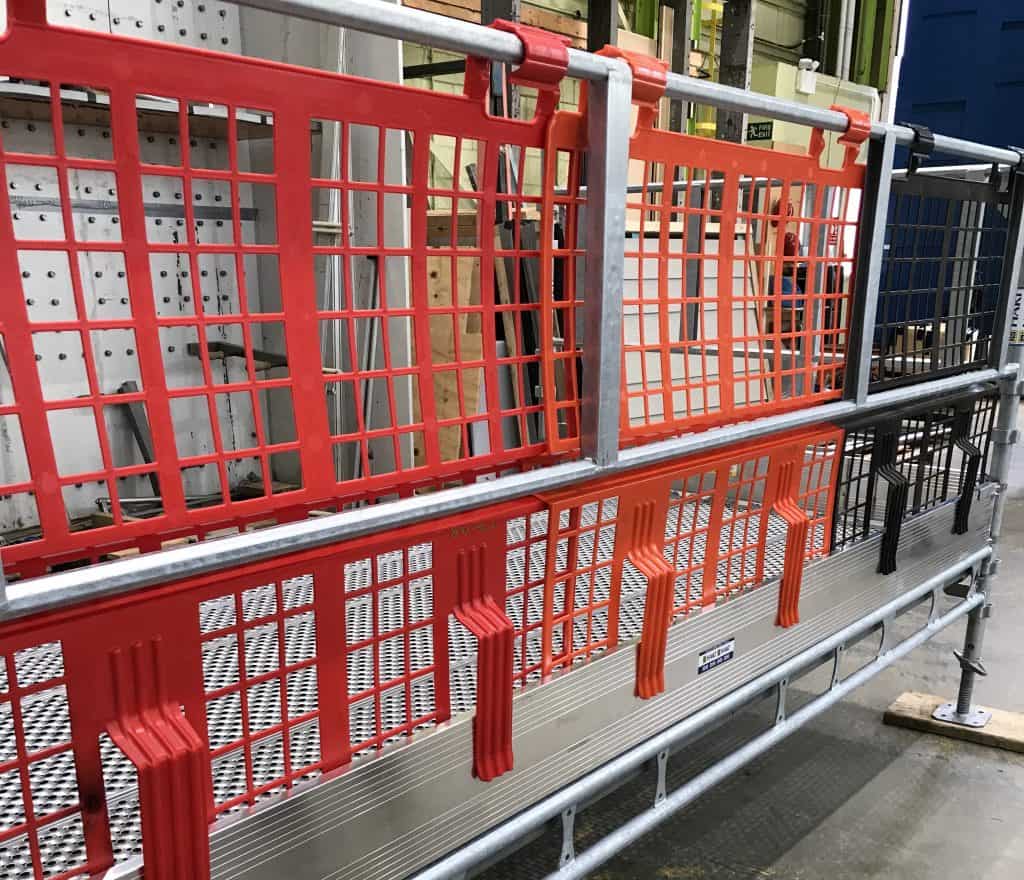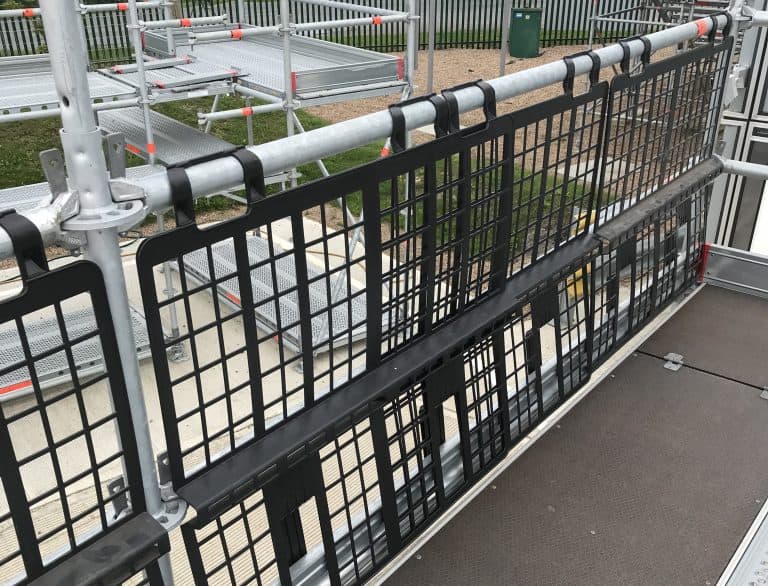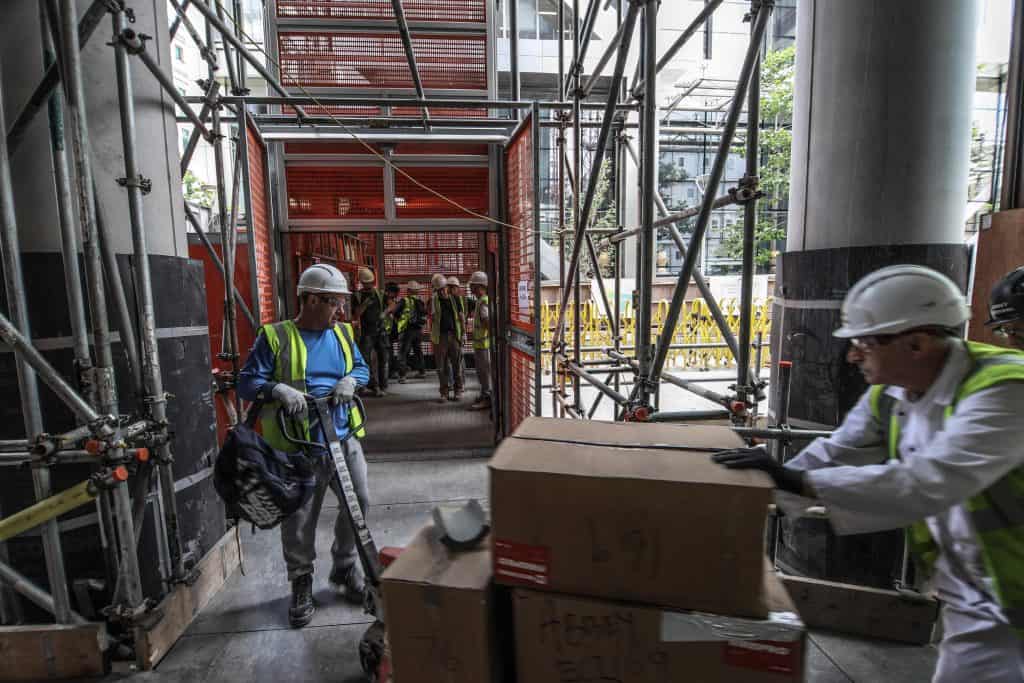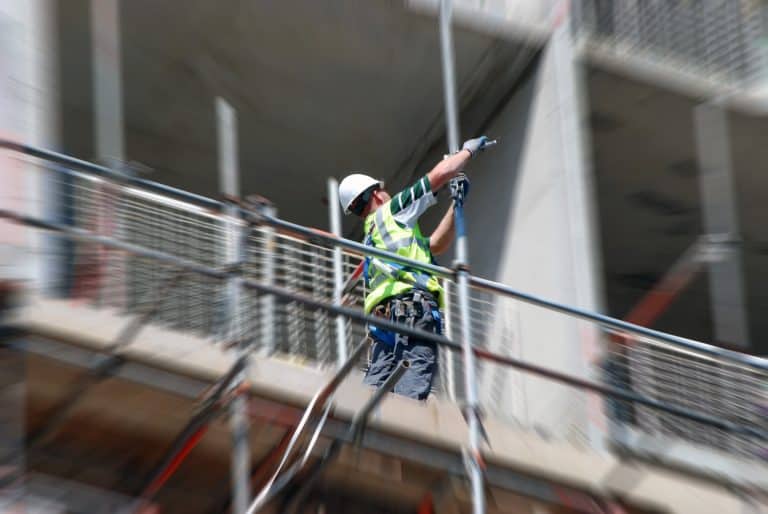A total of 13 speakers will address the Access Industry Forum’s (AIF) second national conference Working at height: Access for Life on Thursday, 14 November 2019, at the AJ Bell Stadium, Salford.
Speakers will cover the issues and topics set to shape the future of access and height safety in a sector which saw 40 fatalities in 2018/19 according to figures released by the Health and Safety Executive.
The keynote address ‘Working at height: State of play’ will be delivered by Sarah Jardine, Acting Head of the HSE’s Construction Division, who will talk about the UK’s current position and standing on safety generally, the latest trends and developments and, significantly, the HSE’s formal response to the inquiry recommendations of the All Party Parliamentary Group (APPG) on Working at Height.
Supported by the Association for Project Safety (APS), the International Institute of Risk and Safety Management (IIRSM) and Hire Association Europe (HAE), the conference will also include presentations from AFI-Uplift, Arup, RoSPA, Transport for London, the Government Office for Product Safety and Standards, the Health and Safety Lawyers’ Association, the No Falls Foundation charity and the National Farmers’ Union (NFU).
The proceedings will be introduced by Peter Bennett OBE, chair of the AIF, and chaired by Dr Shaun Lundy, Visiting Scholar at the University of Greenwich and member of the HSE’s Myth Busters’ Panel.
The speakers, which also include Jason Anker MBE, Paul Blanchard and Dylan Skelhorn of the No Falls Foundation, will cover topics ranging from access and the role of virtual reality to mental health awareness and managing risk. Delegates will also learn about the latest and impending standards, guidance and legislation in the work at height sector.
Peter Bennett OBE said: “With such an impressive line-up of speakers, this really is shaping up to be a must-attend event for anyone involved with work at height. It’s the only conference dedicated exclusively to access and safety, making it a real highlight of the events calendar. I’m certain our delegates will go home with valuable new-found insights into the key topics set to shape the future of working at height.”
As in 2016 at Loughborough University, a work at height exhibition will run alongside the one-day conference. All 11 member organisations of the Forum will be represented and will be joined by, amongst others, the AFI-Group, Euro Towers, Haki, Kee Safety Group, Nationwide Platforms, Pop-Up Products and Spanset.
The AIF is the forum for the principal trade associations and federations involved in work at height. Each organisation represents a different part of the access industry and fosters and supports codes of good practice, equipment standards, training, education and knowledge. Championing the work of the APPG and the No Falls Foundation, its members are ATLAS, BSIF, EPF, FASET, IPAF, IRATA, Ladder Association, NASC, PASMA, SAEMA and WAHSA.
 Luis McCarthy, Director at JMAC Safety Systems, said “As a scaffolder myself, I know the frustrations we’re all having in the industry on a daily basis. My aim is to continue bringing a suite of revolutionary, scaffolding & safety products to the market. The Mac Universal Brickguard has a lot of great features which, I believe, make it the best on the market – it’s the only Brickguard to bypass the rosette on ring system scaffold and the handrail piece at the top can be used on any handrail ledger type, circular or rectangular, making it even more appealing.
The scaffolding industry is a very difficult market place and the work we do is labour intensive, therefore there is a constant need for innovative and durable products to be created. This is one of many new products we are bringing to the market throughout 2019/20, watch this space to see what we release next.”
For more information on this or any more of the JMAC Safety Systems product range, visit www.jmacsafetysystems.co.uk
Luis McCarthy, Director at JMAC Safety Systems, said “As a scaffolder myself, I know the frustrations we’re all having in the industry on a daily basis. My aim is to continue bringing a suite of revolutionary, scaffolding & safety products to the market. The Mac Universal Brickguard has a lot of great features which, I believe, make it the best on the market – it’s the only Brickguard to bypass the rosette on ring system scaffold and the handrail piece at the top can be used on any handrail ledger type, circular or rectangular, making it even more appealing.
The scaffolding industry is a very difficult market place and the work we do is labour intensive, therefore there is a constant need for innovative and durable products to be created. This is one of many new products we are bringing to the market throughout 2019/20, watch this space to see what we release next.”
For more information on this or any more of the JMAC Safety Systems product range, visit www.jmacsafetysystems.co.uk 






 Speaking about the detail of the project, Paul added: “The design element was absolutely critical. The hoists had to lift maximum loads, not just in weight, but also in size, utilizing the cages size to its maximum capacity.
“The Twin Alimak Scando 650 25/46 XL cages were positioned over an existing inspection tunnel, which was a huge consideration due to the loads the hoist imposes at the base. And the hoists had to fit within certain limitations between and around columns at each floor, that change position further up the building.
“We also needed to allow for a maximum amount of glazed cladding to be installed, that comes up tight either side of the hoists, as well as providing weather protection at the building opening where the hoist was positioned, so fit out could commence without the worry that certain fixtures and fixings that will be complete before the hoist is dismantled and removed are not a risk of being damaged by rain or flooding on floors.
“Installations of the hoists were progressive. And to ensure we didn’t delay the project, these were planned to start in late Friday afternoon and over the weekend – with hoist being handed over to site managers, ready for action on the Monday morning.”
The Taylor’s Hoists and Lyndon SGB teams also supplied hoist way protection over and above the norm – these also became part of the landing edge protection, with 2.4m high mesh panels providing a coral around the landing gates on each floor.
Speaking about the detail of the project, Paul added: “The design element was absolutely critical. The hoists had to lift maximum loads, not just in weight, but also in size, utilizing the cages size to its maximum capacity.
“The Twin Alimak Scando 650 25/46 XL cages were positioned over an existing inspection tunnel, which was a huge consideration due to the loads the hoist imposes at the base. And the hoists had to fit within certain limitations between and around columns at each floor, that change position further up the building.
“We also needed to allow for a maximum amount of glazed cladding to be installed, that comes up tight either side of the hoists, as well as providing weather protection at the building opening where the hoist was positioned, so fit out could commence without the worry that certain fixtures and fixings that will be complete before the hoist is dismantled and removed are not a risk of being damaged by rain or flooding on floors.
“Installations of the hoists were progressive. And to ensure we didn’t delay the project, these were planned to start in late Friday afternoon and over the weekend – with hoist being handed over to site managers, ready for action on the Monday morning.”
The Taylor’s Hoists and Lyndon SGB teams also supplied hoist way protection over and above the norm – these also became part of the landing edge protection, with 2.4m high mesh panels providing a coral around the landing gates on each floor.
 As usual, safety elements for the massive hoists were critical, with all calculations compiled in collaboration with the hoist manufacturer, passed by the main contractor.
Paul added: “This type of high-rise installation requires heavier duty components to start with – to accommodate the loads when the full install is in place. Each tie position was scrutinized to ensure we had the smallest loads going back through the building structure and hoist components.
” We invested more than £5,000 on Heras fencing panels, feet and restraints to provide a solid/temporary exclusion zone around the hoist every install, adhering to Lendlease GMR’s. The exclusion zone would then be locked whilst works were being carried out, ensuring our work area was free from other people and trades.”
And with an eye on environmental responsibility, the Taylor’s Hoists team kept test weights on site, thus reducing the project’s carbon footprint, with fuel used and time taken for deliveries and collections made.
As usual, safety elements for the massive hoists were critical, with all calculations compiled in collaboration with the hoist manufacturer, passed by the main contractor.
Paul added: “This type of high-rise installation requires heavier duty components to start with – to accommodate the loads when the full install is in place. Each tie position was scrutinized to ensure we had the smallest loads going back through the building structure and hoist components.
” We invested more than £5,000 on Heras fencing panels, feet and restraints to provide a solid/temporary exclusion zone around the hoist every install, adhering to Lendlease GMR’s. The exclusion zone would then be locked whilst works were being carried out, ensuring our work area was free from other people and trades.”
And with an eye on environmental responsibility, the Taylor’s Hoists team kept test weights on site, thus reducing the project’s carbon footprint, with fuel used and time taken for deliveries and collections made.
 Interestingly, the Taylor’s team has conducted more than 20 thorough examinations and structural tests over the six vertical access hoists on the project to date, with more to follow.
Paul concludes: “The standards we have provided on this project are some of the highest we have ever provided in our award-winning hoists business to date. The detail has been enormous – from the weather protection we supplied, the hoist way protection and protection of edges and holes within the floor slabs, supply of saloon doors covering the small gap between the hoist cage and hoist landing gates, to ensuring small materials that are not sufficiently secured when taking in and out of the hoist cannot fall from height. It’s been epic.”
Interestingly, the Taylor’s team has conducted more than 20 thorough examinations and structural tests over the six vertical access hoists on the project to date, with more to follow.
Paul concludes: “The standards we have provided on this project are some of the highest we have ever provided in our award-winning hoists business to date. The detail has been enormous – from the weather protection we supplied, the hoist way protection and protection of edges and holes within the floor slabs, supply of saloon doors covering the small gap between the hoist cage and hoist landing gates, to ensuring small materials that are not sufficiently secured when taking in and out of the hoist cannot fall from height. It’s been epic.”





